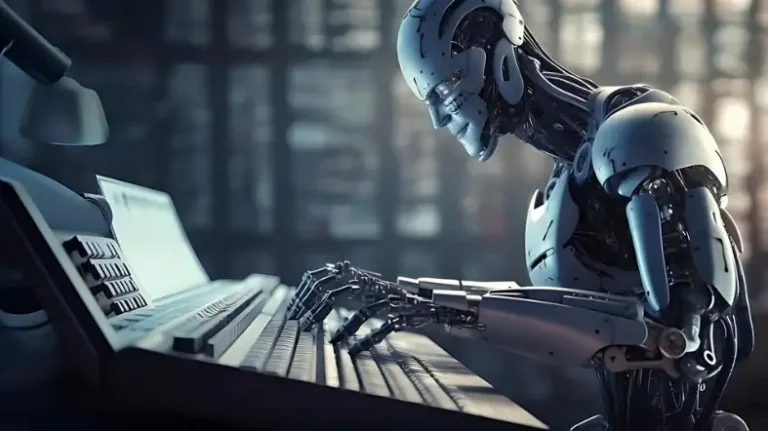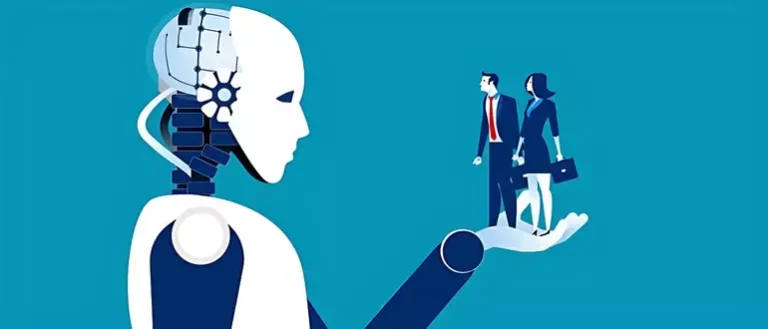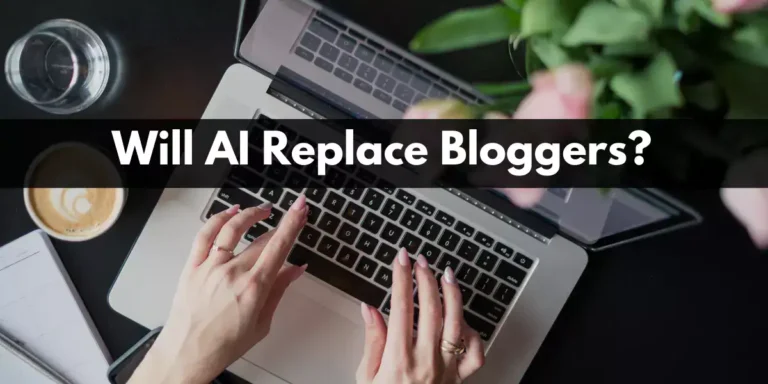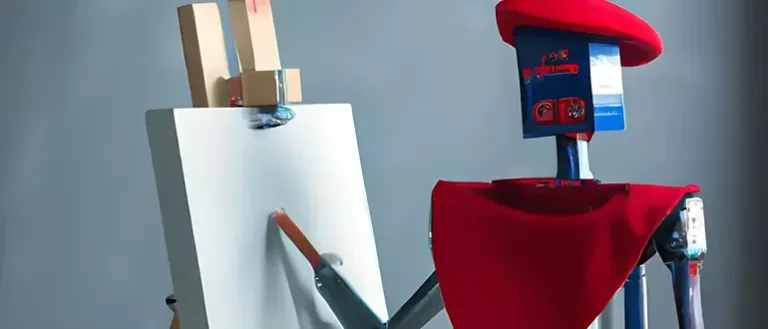As the field of artificial intelligence advances, some wonder if it will eventually replace biologists.
While AI is already making significant contributions to the area, including identifying new species and analyzing genetic data, many biologists remain confident that their unique skills and intuition will always be necessary for scientific discovery.
In this blog post, we will explore the potential implications of its continued development, the skills required as a biologist to embrace AI effectively, and how biologists use AI in their work.
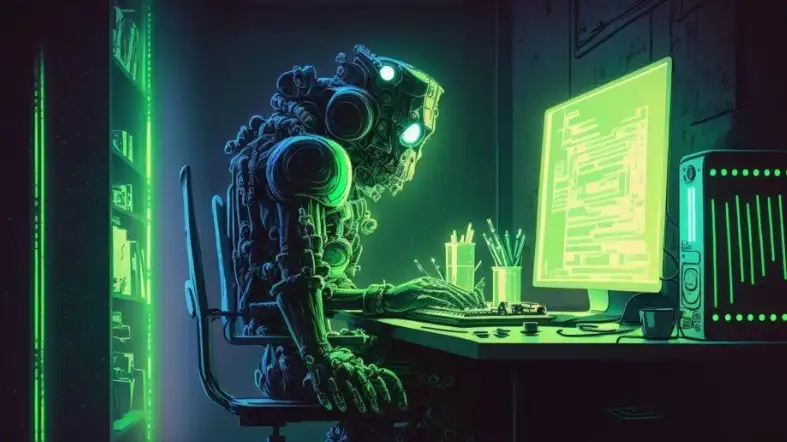
Will AI Replace Biologists?
No, AI cannot replace biologists entirely, as biologists require complex problem-solving, creativity, and manual dexterity.
AI can assist with data analysis, but biologists use their knowledge and intuition to design experiments and interpret results.
Biologists also perform tasks such as sample collection and fieldwork that require a human presence.
Biologists will continue to play a critical role in advancing our understanding of the natural world.
What Are The Implications Of AI Replacing Human Biologists?
Job displacement:
One of the primary implications of AI replacing human biologists is job displacement.
As AI becomes more advanced, it can perform tasks that previously required human intelligence, such as analyzing data, diagnosing diseases, and synthesizing complex information.
This could significantly reduce the number of human biologists required, potentially resulting in unemployment and economic disruption.
However, some experts argue that AI will not replace human biologists entirely but will instead augment their abilities.
Technological advancements:
Another implication of AI replacing human biologists is the potential for technological advancements.
With the ability to process vast amounts of data quickly and accurately, AI could facilitate scientific research and medical treatment breakthroughs.
For example, AI algorithms have already been shown to outperform human radiologists in diagnosing lung cancer.
AI could help researchers and biologists make significant strides in their respective fields by automating tedious tasks and providing insights that humans may miss.
Increased Efficiency
Efficiency gains are among the most important advantages of AI replacing human scientists.
A lot of time and money can be saved since AI can evaluate enormous volumes of data much more quickly than humans.
AI, for instance, can distinguish DNA sequence patterns in a fraction of the time that it would take a person to do so.
This may be particularly helpful in the medication development process, as AI can uncover possible therapeutic candidates faster than humans could.
Reduced Error Rates
The ability of AI to replace human biologists has the added advantage of lowering mistake rates. Humans are prone to errors when working with a lot of data.
AI, on the other hand, has the ability to examine data perfectly, lowering the possibility of mistakes in study results.
AI, for instance, may assist in spotting minute variations between cancer cells and healthy cells that humans would overlook, resulting in more precise diagnoses and therapies.
Changing Roles for Human Biologists
The jobs of human biologists will alter when AI replaces some of the functions they have historically done.
Human scientists may choose to concentrate on planning experiments and evaluating the outcomes rather than examining data.
This may result in more imaginative and creative research initiatives and enable human biologists to use their knowledge in more significant ways.
Ethical concerns:
The rise of AI also raises ethical concerns, particularly with regard to privacy, bias, and the role of human judgment.
As AI becomes more integrated into biological research and healthcare, it may gather sensitive personal information about patients, leading to concerns over data privacy.
Additionally, AI algorithms may be prone to bias, perpetuating inequalities and injustices in healthcare and research.
Finally, the role of human judgment in decision-making is called into question when AI is used to diagnose and treat patients.
Some experts argue that AI should not replace human judgment entirely, as humans bring unique perspectives and experiences that machines cannot replicate.
What Skills Do Biologists Need To Develop To Work Effectively With AI?
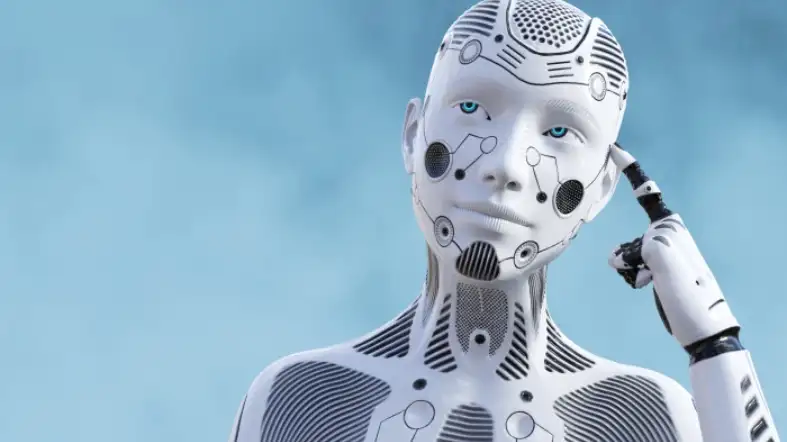
Improve Your Analysis and Problem-Solving Skills:
Working with algorithms and applied mathematics will take up most of your time as an AI practitioner.
As a result, in order to effectively address AI challenges, you also need to have excellent analytical and problem-solving abilities.
You might benefit from learning mathematical concepts and methods that are useful for AI specialists, such as linear algebra, statistics, probability, graphs, and optimization methods.
Develop Your Programming Languages:
It’s crucial to expand your programming language skills if you want to become an expert in AI.
Python, Java, C++, R, JavaScript, TypeScript, Go, Scala, Kotlin, and Julia are among the top 10 machine learning languages, according to GitHub.
Python and R are the most widely used languages for data science and AI; thus, mastering them is essential.
You should also be familiar with creating and using models, algorithms, and software, and applications.
Gathering and analyzing master data
You’ll spend much of your time as a biologist studying and deciphering data.
Fieldwork requires the ability to collect and analyze data, which may assist wildlife scientists in gathering and interpreting correct information on animal species.
This might include constructing algorithms, developing remote camera equipment, making notes, using statistical techniques, and generating databases.
Enhance Your Business Skills:
AI is about more than just technology; it’s also about comprehending organizational behavior and functioning in a business setting.
For AI workers, it’s crucial to have interpersonal, leadership, and business abilities.
AI professionals must be able to create and execute AI strategies, comprehend their organizations’ objectives, and share AI initiatives’ outcomes with stakeholders.
Create a Robust Mathematical Foundation
You require a strong calculus, algebra, and linear algebra background to become an AI practitioner.
You should also brush up on your statistics skills since they are essential for creating and assessing machine learning models.
Understanding AI Tools and Technologies
The newest AI tools and techniques must be kept up to date by biologists. Machine learning models are created and trained using programs like TensorFlow, PyTorch, and Keras. You can maintain your competitiveness and relevance in AI by learning AI tools and technology.
Improve soft skills:
Biologists who wish to collaborate successfully with AI must possess soft skills. These abilities include critical thinking, collaboration, and communication.
AI practitioners must convey the outcomes of their work to stakeholders and team members, making communication skills especially crucial for them.
How Are Biologists Using AI Technology In Their Work?
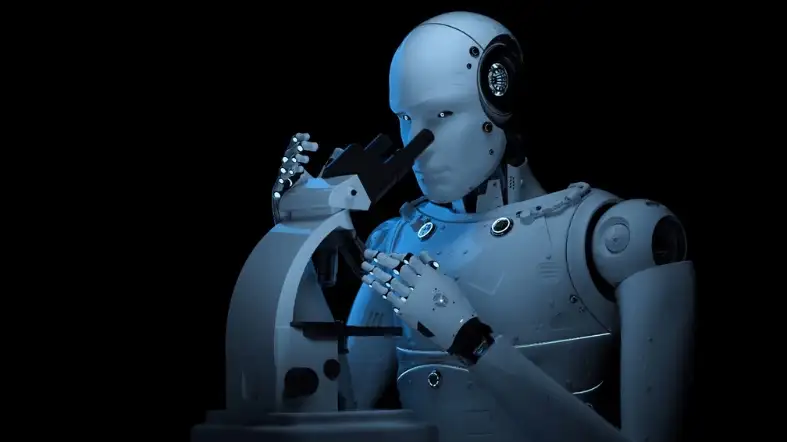
Analyzing DNA Sequences:
DNA sequencing is the process of determining the precise order of nucleotides within a DNA molecule.
Biologists can use AI algorithms to analyze the large amounts of data generated by DNA sequencing.
For example, they can use machine learning algorithms to identify mutations that cause genetic diseases or to predict the structure of proteins based on their DNA sequence.
Monitoring Wildlife:
AI technology can help biologists monitor wildlife populations and track animal behavior.
For example, researchers can use AI-powered cameras to identify individual animals and track their movements.
AI algorithms can also be used to analyze animals’ sounds and identify different species based on their unique vocalizations.
Drug Discovery:
AI technology can help biologists discover new drugs by analyzing large datasets of chemical compounds and predicting which ones are most likely to be effective.
This process, known as virtual screening, can save researchers significant time and resources compared to traditional drug discovery methods.
Predicting Outcomes of Experiments:
AI can help biologists predict the outcome of experiments by analyzing past results and identifying patterns.
For example, researchers can use machine learning algorithms to predict the success rate of gene editing techniques based on previous experiments.
Automating Lab Processes:
AI technology can help biologists automate lab processes, such as image analysis and data entry.
This can save researchers time and reduce the risk of errors. For example, researchers can use AI-powered microscopes to identify and count cells in a sample automatically.
FAQs
What Is The Current State Of AI In Biology?
AI has been used in various biological applications, such as predicting protein structures and analyzing genetic data.
While AI has shown promising results in some areas, it has yet to reach a point where it can fully replace biologists.
Can AI Replace Biologists In The Field Of Ecology?
AI will only partially replace biologists in the field of ecology.
While AI can assist in analyzing data and making predictions, interpreting the results and designing experiments require human input.
Additionally, ecology involves many variables and factors that AI cannot fully capture.
How Will The Role Of Biologists Change With The Advancement Of AI?
As AI advances, the role of biologists may shift toward data analysis and interpretation rather than data collection.
Biologists may also use AI to assist in predicting outcomes and designing experiments.
However, the expertise of a biologist in experimental design and interpretation will still be necessary.
Is There A Risk Of Job Loss For Biologists Due To AI?
While there may be some tasks that AI can perform more efficiently than humans, the role of biologists in conducting experiments and interpreting results will remain critical.
Additionally, using AI may create new job opportunities for biologists in developing and implementing AI technology.
Can AI Replace Biologists In The Field Of Ecology?
It is unlikely that AI will fully replace biologists in the field of ecology.
While AI can assist in analyzing data and making predictions, interpreting the results and designing experiments require human input.
Additionally, ecology involves a wide range of variables and factors that AI cannot fully capture.
Conclusion
Although AI is transforming biology, it is doubtful that it will ever totally replace biologists.
While AI can swiftly absorb and analyze massive volumes of data, it lacks the imagination, intuition, and critical thinking abilities necessary for biological study.
The most effective strategy is for biologists to collaborate with AI, utilizing it as a tool to improve their job and provide fresh ideas.
We can significantly advance our knowledge of the natural world by combining the skills of AI and biologists.
